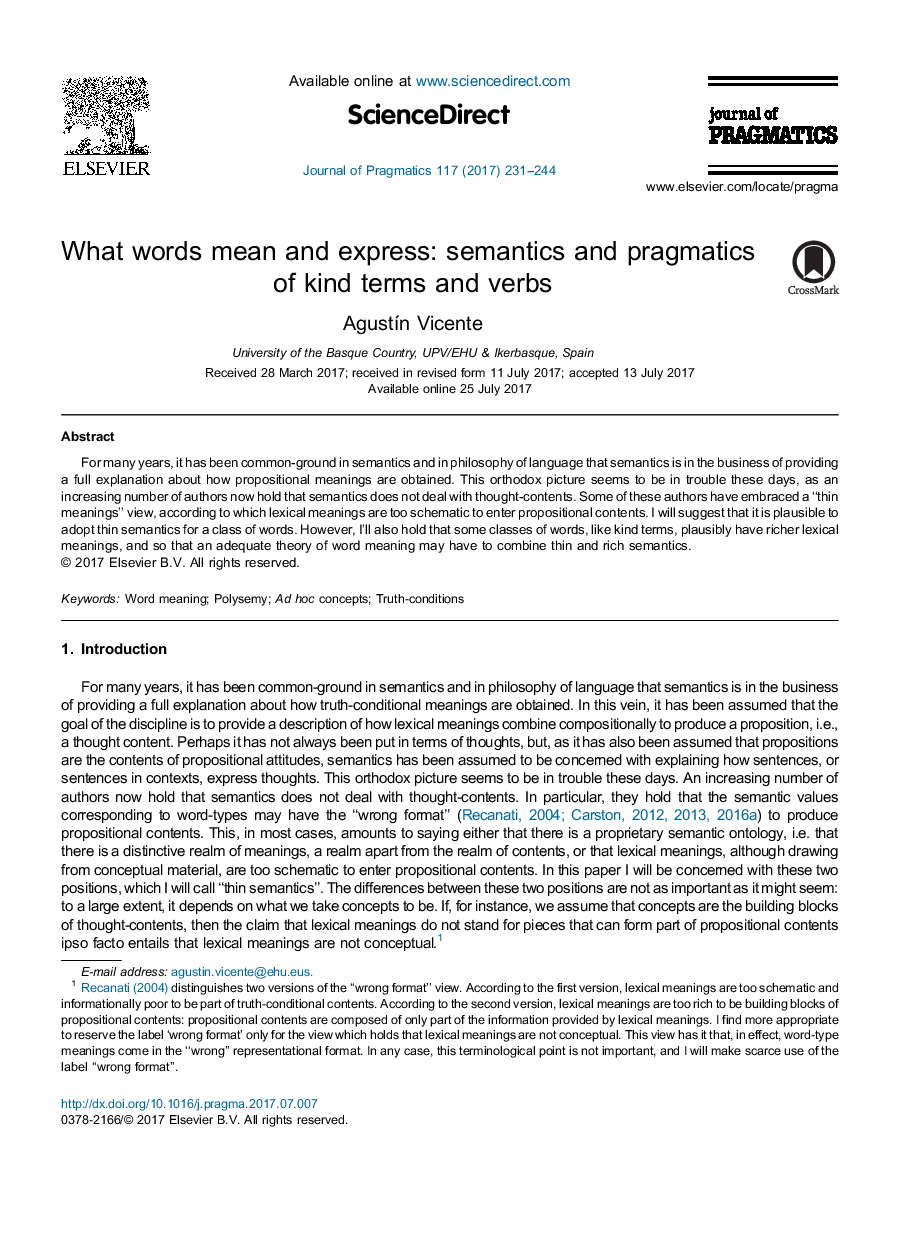| Article ID | Journal | Published Year | Pages | File Type |
|---|---|---|---|---|
| 5042664 | Journal of Pragmatics | 2017 | 14 Pages |
â¢The issue of word meaning is examined in the context of pragmatic theories.â¢It is suggested that not all classes of words have the same kind of meaning.â¢Kind terms provide different meaning possibilities and verb meanings are enriched in composition.â¢Conceptual semantics has better explanations than some new approaches to semantics.
For many years, it has been common-ground in semantics and in philosophy of language that semantics is in the business of providing a full explanation about how propositional meanings are obtained. This orthodox picture seems to be in trouble these days, as an increasing number of authors now hold that semantics does not deal with thought-contents. Some of these authors have embraced a “thin meanings” view, according to which lexical meanings are too schematic to enter propositional contents. I will suggest that it is plausible to adopt thin semantics for a class of words. However, I'll also hold that some classes of words, like kind terms, plausibly have richer lexical meanings, and so that an adequate theory of word meaning may have to combine thin and rich semantics.
